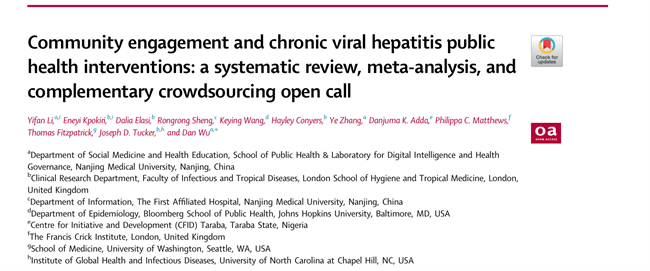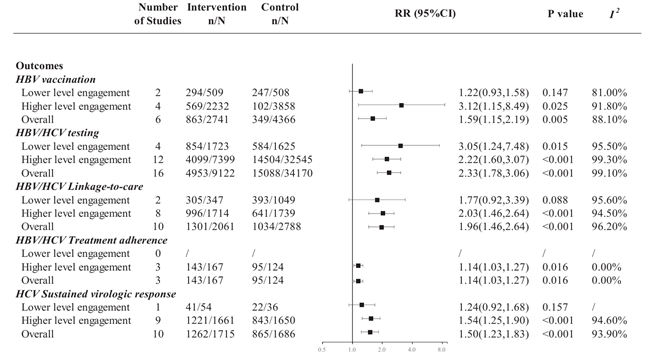A research team led by Professor Dan Wu from the School of Public Health at Nanjing Medical University, in collaboration with the London School of Hygiene and Tropical Medicine, has recently published a study titled “Community engagement and chronic viral hepatitis public health interventions: a systematic review, meta-analysis, and complementary crowdsourcing open call” in eClinicalMedicine, a journal under The Lancet family. This work pioneers a dual-track approach—combining systematic review with global crowdsourcing to demonstrate how community-driven strategies significantly enhance hepatitis control outcomes globally.

Chronic hepatitis B virus (HBV) and hepatitis C virus (HCV) infections are major global public health concerns, with the highest disease burden occurring in low- and middle-income countries (LMICs). Despite advances in vaccination and treatment, barriers such as low diagnosis rates and poor treatment adherence persist. Professor Wu’s team employed a combination of systematic review and a global crowdsourcing open call to evaluate community-engaged interventions. Their findings demonstrated that community-engaged interventions significantly improved chronic viral hepatitis care across the continuum—including HBV vaccine completion, HBV/HCV test uptake, HBV/HCV linkage to chronic viral hepatitis care, HBV/HCV treatment adherence, and HCV sustained virologic response—when compared with traditional interventions. The open call received 28 submissions, primarily from LMICs, showcasing community-led initiatives such as patient advocacy groups, grassroots health education, awareness-raising campaigns, and initiation and implementation of hepatitis care programmes. These efforts illustrated how empowering communities can lead to tangible improvements in access, engagement, and outcomes in hepatitis care, as well as drive policy change.

The study emphasized the core principle of co-design, where community members and patients are not just recipients but active partners in shaping and implementing interventions. Strategies included peer education, training for community health workers, and interactive educational programs. This participatory model transforms patients from passive recipients to active stakeholders in their own health. The findings highlighted The study provides a cost-effective blueprint for global hepatitis elimination, emphasizing community empowerment as a catalyst for sustainable public health impact.Professor Dan Wu from School of Public Health of our university served as the corresponding author of this study. Yifan Li, a PhD candidate at the School of Public Health, was the first author, alongside co-first author Assistant Professor Eneyi Kpokiri from the London School of Hygiene and Tropical Medicine. The research was funded by the National Natural Science Foundation of China.
The original article link: https://www.thelancet.com/journals/eclinm/article/PIIS2589-5370(25)00166-X/fulltext
(Drafted by Prof. Wu Dan’s Team; Reviewed by Prof. Lu Chuncheng; Translation revised by Dr. Wu Wenbo )



